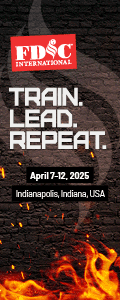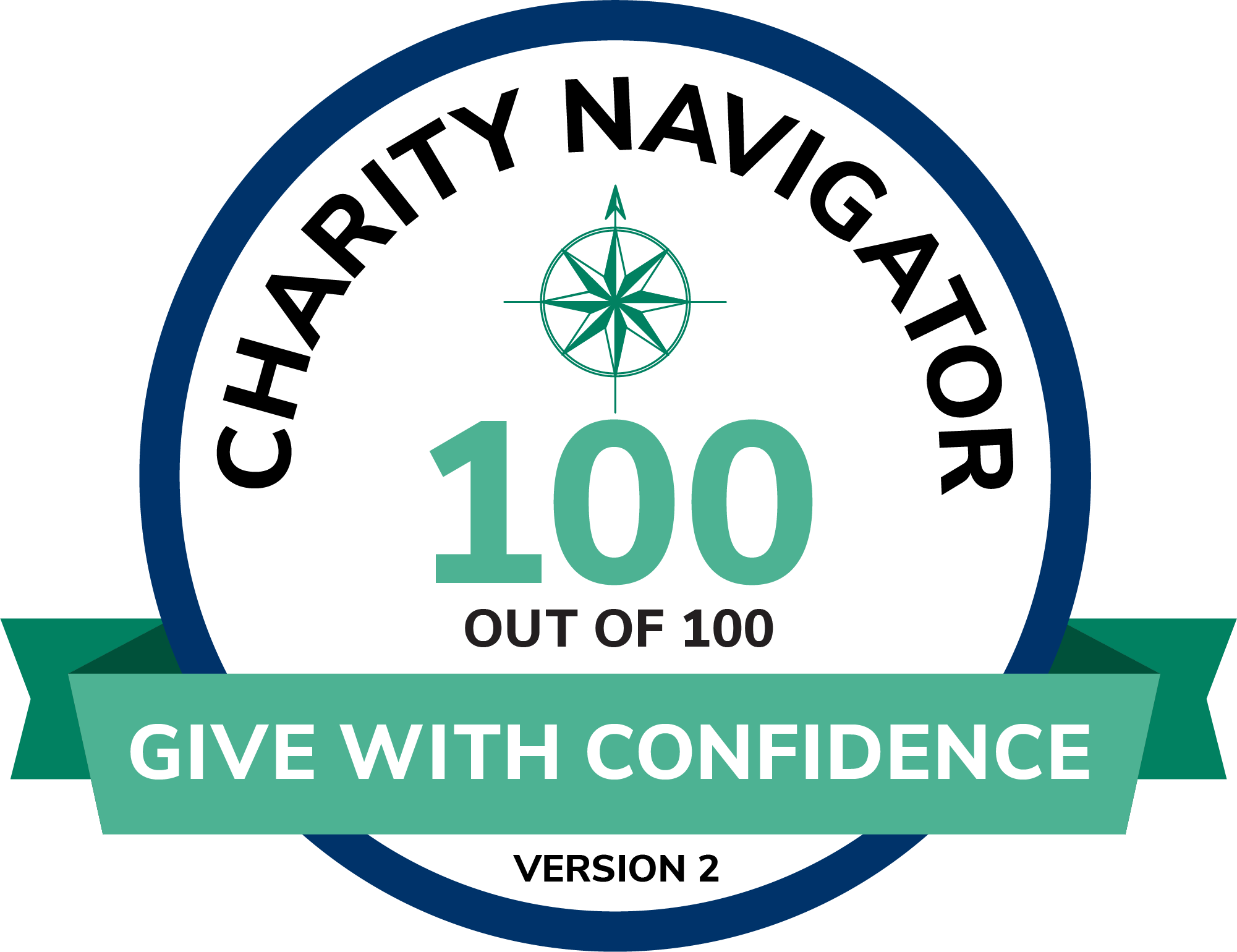Q&A With National Volunteer Fire Council CEO Sarah Lee
November 2, 2021
 Sarah Lee was named the National Volunteer Fire Council’s (NVFC) new CEO at its fall board meeting in Jackson, WY, in October. She had served as interim CEO since May, and before that was deputy CEO of the organization for 15 years. As she officially takes the helm of the organization, we sat down with Sarah to discuss her time with the NVFC, her vision for the future, and some things our members may not know about our new CEO.
Sarah Lee was named the National Volunteer Fire Council’s (NVFC) new CEO at its fall board meeting in Jackson, WY, in October. She had served as interim CEO since May, and before that was deputy CEO of the organization for 15 years. As she officially takes the helm of the organization, we sat down with Sarah to discuss her time with the NVFC, her vision for the future, and some things our members may not know about our new CEO.
Tell us about your background before you started with the NVFC.
After college, I worked for a small local nonprofit and learned that I really valued that sense of giving back and doing something good and beneficial in my everyday work. This morphed into a position with the Commission on Accreditation International (now CPSE) where I managed the Chief Fire Officer Designation Program for a while before moving into the executive director position. It was there that I really found my niche working with a nonprofit in the fire service field. It was really a perfect marriage of two of my favorite things. During this time, I was also going to school, earning my master’s in public administration with a specialization in nonprofit management because I knew this was the field I wanted to be in.
You are just about to hit your 16-year anniversary with the NVFC. What drew you to the organization and what was your previous experience with the fire service?
The fire service is what drew me to the NVFC. I grew up in a fire service family (my dad was a volunteer and then a career firefighter) and later I married a volunteer firefighter/EMT, so the fire service hits close to home for me. My brother and stepson are also firefighters (both starting as volunteers before moving to career) and my mom worked as administrative staff for the same fire department as my dad and brother. The NVFC really afforded me the opportunity to experience the sense of family that permeates the fire and emergency services while also feeling like I can make a difference in my everyday job.
What personal and/or organizational accomplishments stand out most in your time at the NVFC?
This organization has accomplished so much in my time here. When I started at the NVFC in 2005, we had less than 1,000 members and today we have more than 27,500 members. We grew from not having a formal training program to having a full-fledged Virtual Classroom, an annual Health & Safety Training Summit, and just this year we launched an inaugural recruitment and retention conference. We were one of the first organizations to recognize the important role of family in a volunteer’s life with our resource What to Expect: A Guide for Family Members of Volunteer Firefighters. As a family member of several first responders, I knew firsthand how important the role of the family is to the success and longevity of a volunteer first responder, yet family is often overlooked.
We also grew from having two primary programs in 2005 (Fire Corps and the Heart-Healthy Firefighter Program) to seven programs today that help departments with everything from managing their junior firefighter programs to improving physical and behavioral health outcomes. We launched the first and only national recruitment campaign with the Make Me A Firefighter Program. Many of these programs are award winning, but more importantly, these programs have saved lives, and that’s really what it’s all about.
What is your favorite memory as an employee with the NVFC?
There have been many favorite moments and memories in my time here at the NVFC. But more than that, the people I have gotten to meet and work with are what have really left an impression on me. From the generous, dedicated members I’ve gotten to meet from across the country to the talented and dedicated board members and colleagues I have had the pleasure of working with, the people have been the true highlight of my career here.
You worked side-by-side with Heather Schafer for many years as her deputy CEO. What type of legacy did she leave and how has she impacted you professionally and personally?
Heather was a great leader and a visionary thinker. She knew what she wanted for the NVFC and how to put the puzzle pieces together to get there. She was a tireless advocate for volunteers, and under her leadership the NVFC launched a number of programs, initiatives, and partnerships that benefited the volunteer fire and emergency services. Professionally, I learned a lot from Heather and was afforded many opportunities to learn new skills, try out new ideas, and take on new challenges. Even after 15 years, there was always something new to learn or explore as we worked to further the NVFC’s mission. In addition to being a great leader, Heather was a great friend and I’m truly grateful for the 15 years I got work with her and know her.
What is the greatest lesson you learned from working with Heather?
I learned a lot from Heather, but probably the greatest lesson is how she treated others. She was kind and empathetic, thoughtful and deliberate, and I think these traits really resonated with those around her. As a leader, she empowered those around her to be creative and gave them the bandwidth to share and explore ideas. She valued what others had to say and contribute. Because of this, she developed strong teams, lasting partnerships, and valued friendships that contributed to the growth and success the NVFC experienced during her 27-year tenure.
What do you feel are your biggest strengths that you bring to the job of CEO?
In my days working in the nonprofit realm, I have always been really interested in knowing all of the jobs and skills that go into running a successful organization. From administrative work, to program management, data management, fundraising, member relations, customer service, and accounting, I’ve always been curious and enjoyed the flexibility to wear multiple hats and teach myself new skills. This curiosity and the multiple experiences it afforded me allows me to understand and empathize with our team, drives my desire to learn new things, and causes me to continually question how we can improve upon what we’re doing, become more efficient, more effective, and ensure we’re doing the best possible job we can to support America’s volunteer responders.
This year marks the 45th anniversary of the NVFC. The organization has grown by leaps and bounds in that time. What is your vision for the future of the organization, both in the short term and the long term?
Our primary goal is unchanged, and that is to ensure that first responders have the tools, resources, and information they need to conduct their job safely and effectively and can go home to their families at the end of every call and every shift. For us to achieve this goal, we need to address the issues that are disproportionally affecting first responders such as firefighter cancer, behavioral health concerns, suicide, heart attacks, injuries, and other preventable health risks. We know departments are struggling to recruit and retain volunteers. We actively address all of these issues through our national programs as well as through our training opportunities, resources, and advocacy efforts.
In the short term, members will see an increased focus on training with expanded training topics and opportunities. We’ll be working to build strong partnerships with our friends and allies, and providing opportunities for members to truly engage with the NVFC so they can be part of the solutions they are seeking. We’ll also be working to highlight all of the amazing things volunteers do in and for their communities to raise general public awareness of the need for volunteers and all of the great tangible and intangible benefits that come with volunteering.
In the long term, I envision the NVFC becoming a common name in every volunteer firehouse, a place where volunteers and volunteer leaders know they can turn for information and get the support they need to belong to or run a successful, safe department. I see NVFC becoming the nation’s firehouse, where the volunteer community can gather, share ideas and best practices, get the help and support they need to overcome challenges, and where we can celebrate everyone’s successes, contributions, and triumphs as a fire service family.
What message would you like to give to the NVFC membership and the volunteer fire and emergency services as a whole?
I want our members and all fire/emergency service volunteers to know that the NVFC is here to help. Whether you need resources to help with recruitment or retention, want information on preventing firefighter cancer, need sample policies or procedures, or just want to bounce some ideas off of your peers from around the country, the NVFC can assist. Call, email, join – the NVFC family is strong, and we are here to support you.
What is something most people don’t know about you or wouldn’t expect about you?
For several years, I taught the Motorcycle Safety Foundation’s Motorcycle Safety Course on the weekends for fun. It was a fun way to get out, meet new people, and help both new and experienced riders learn how to ride and to be safer on the roadways.
What do you do in your spare time?
In my spare time I love to read, go camping with my family, and I look forward to our weekly family movie nights – though every week it gets harder and harder to identify a movie we haven’t watched yet! Physical fitness is also important to me and a great way to stay mentally and physically strong, so I try to incorporate some sort of physical activity into every day.



